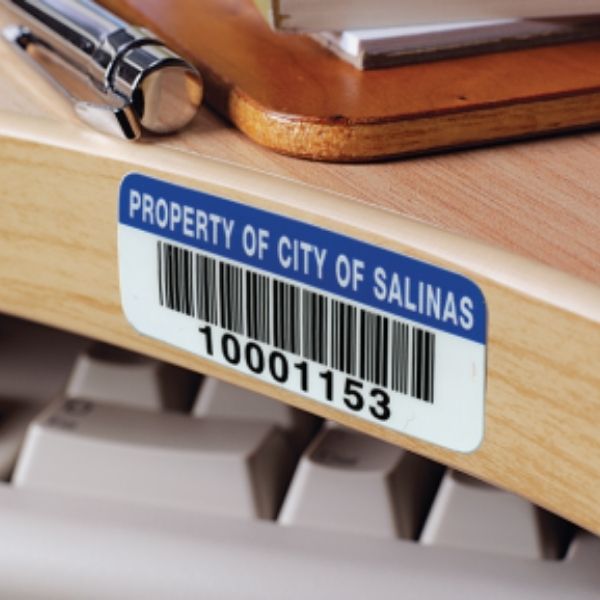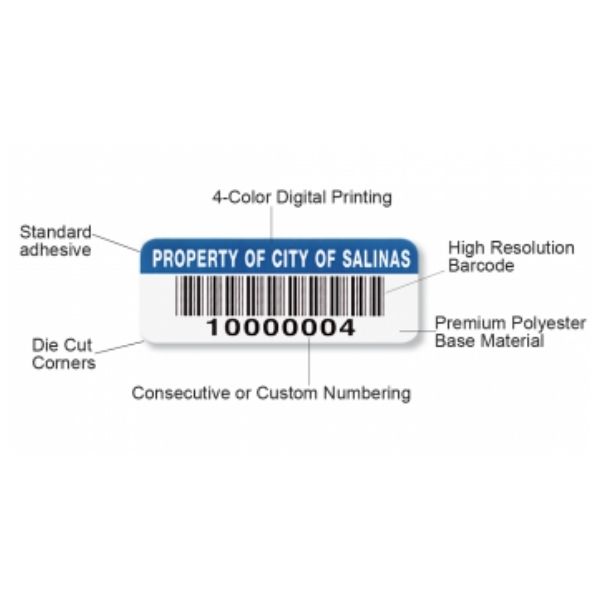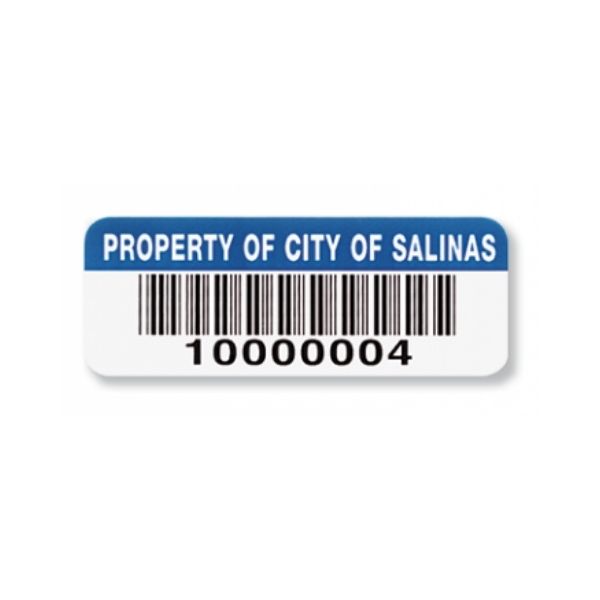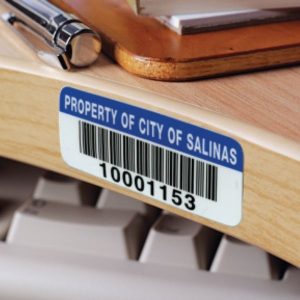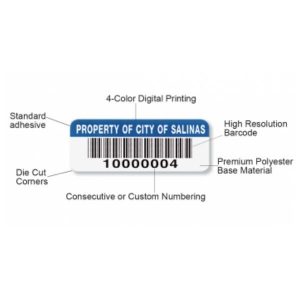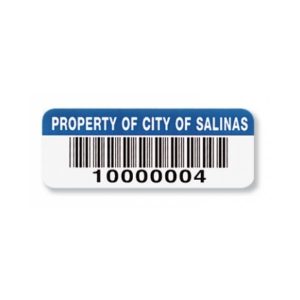Project Description
Durable .002″ polyester Premium Polyester Labels adhere to uneven and curved metal and plastic assets.
The .002” pressure-sensitive adhesive gives a strong bond. The subsurface, digital printing ensures barcode readability and crisp graphics. Its durability, when exposed to chemicals, is exceptional.
Durable .002″ polyester material easily conforms to curved or uneven surfaces
Adhesive bonds well to plastics and metal surfaces
Digital printing process ensures bar code readability as well as crisp, clean company logos
Specification Data
| Material | .002″ thick white or silver polyester |
| Bar Code & Serialization | Bar code and human-readable equivalent is produced using the latest high-resolution digital technology available, which provides excellent clarity and easy scanning. Code 39 is the standard symbology with a range of 2.7 to 9.4 CPI (characters per inch). Optional symbologies include Code 128, I 2 of 5, 2D DataMatrix and QR Code. |
| Label Copy | The label copy may include block type, stylized type, logos or other designs |
| Colors | Standard colors include black, red, yellow, green, dark blue, orange, purple or blue. Custom spot colors are also available at no additional charge. Due to contrast needed for the bar code scanner, all bar codes are black. |
| Standard Adhesive | High performance adhesive, particularly suited for a wide range of polyolefin and other low-surface energy materials (powderpaints, etc.) |
| Sizes | 51mm x 25mm; 51mm x 16mm; 32mm x 13mm; 38mm x 19mm; 51mm x 19mm; 44mm x 13mm |
| Packaging | Shipped on convenient rolls with scrap matrix removed for ease of removal. Cartons are clearly marked to indicate serial numbers of labels. |
| Shipment | 6 business days |
Asset Tracking
OEM Product Identification
Work-in-Process
-
Chemical Testing
-
Temperature Testing
-
Barcode Readibility Testing
-
Abrasion Testing
Chemical Test Data
Labels were applied to a clean glass substrate and submerged in the following chemicals for 6 hours. A 180-degree peel test was performed on each label to measure peel strength and a percentage peel strength change was calculated based on a sample left in standard room temperature dry conditions.
Chemical resistance of adhesive
| Water | Glass Cleaner |
Bathroom Cleaner |
Isopropyl alcohol |
Acetone | NaOH pH 12 |
HN03 pH 12 |
HCI pH 12 |
Brake Fluid |
Diesel Fluid |
|
| Peel Strength (control) |
5.5 | 5.5 | 5.5 | 5.5 | 5.5 | 5.5 | 5.5 | 5.5 | 5.5 | 5.5 |
Temperature Test Data
Labels were applied to a clean glass substrate and heated to the temperatures listed below for 1 hour. Peel tests were performed to compare change in adhesive strength and bar codes were graded before and after testing to measure image degradation severity.
Adhesive strength change after heat exposure
| 40° C for 1 hour | 100° C for 1 hour | 150° C for 1 hour | 200° C for 1 hour | |
| Peel Strength (Control) | 5.5 | 5.5 | 5.5 | 5.5 |
| Actual Peel Strength (lb/in) | 4.6 | 5.1 | 4.8 | 2.1 |
Barcode Readability Test Data
| 40° C for 1 hour | 100° C for 1 hour | 150° C for 1 hour | 200° C for 1 hour |
| 0 | 1 | 1 | 2 |
Abrasion Test Summary
Labels survived more than 2,500 revolutions on Taber Abrader using Calibrase H18 wheel with 1000g weight and remained readable with a bar code reader.

